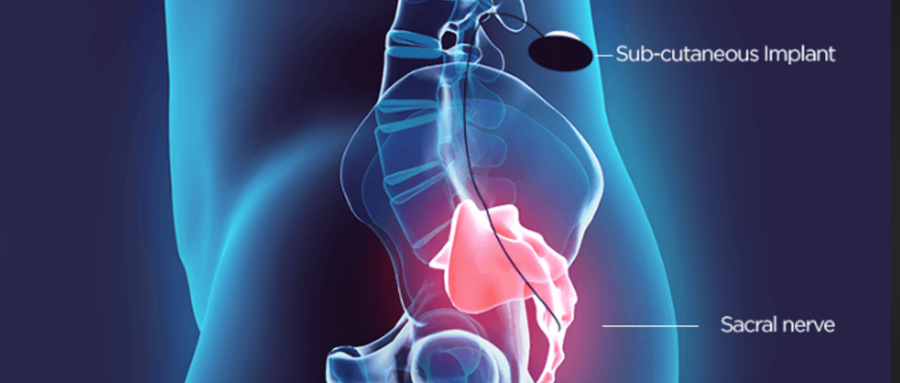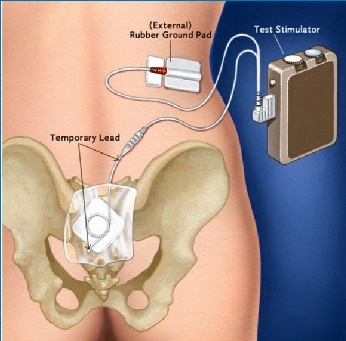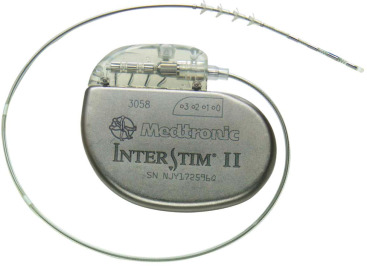Sacral nerve stimulation surgery for bowel incontinence in india

Sacral Nerve Stimulation Surgery For Bowel incontinence in India
Are you looking for the best sacral nerve stimulation surgery treatment for bowel incontinence in India? Please get in touch with us for any Queries on WhatsApp/ Viber/Telegram: +91 9582708782
Sacral Nerve Stimulation
Sacral Nerve Stimulation Surgery for Bowel Incontinence: A Comprehensive Guide

Bowel incontinence, also known as fecal incontinence, is a condition that affects millions of people worldwide. It is characterized by the inability to control bowel movements, leading to involuntary leakage of stool. This condition can severely impact an individual’s quality of life, causing emotional distress, social embarrassment, and physical discomfort. While conservative treatments such as dietary modifications, medications, and pelvic floor exercises can be effective for some, others may require more advanced interventions. One such option is sacral nerve stimulation (SNS) surgery, a cutting-edge treatment that has shown promising results in managing bowel incontinence. This article delves into the details of sacral nerve stimulation surgery, including its indications, procedure, benefits, risks, and outcomes.
Understanding Sacral Nerve Stimulation
Sacral nerve stimulation is a minimally invasive surgical procedure that involves the use of electrical impulses to modulate the activity of the sacral nerves. These nerves play a crucial role in controlling the pelvic floor muscles, rectum, and anal sphincter, which are essential for maintaining bowel continence. By stimulating these nerves, SNS helps to restore normal bowel function and reduce episodes of incontinence.
Whic is the Best Implants for Sacral Nerve Stimulation?

Several implant devices are approved for sacral nerve stimulation, each with unique features that cater to specific patient needs. Some of the leading implants include:
- Medtronic InterStim Systems:
- InterStim II: A widely used implant known for its compact size and effective performance.
- InterStim Micro: A rechargeable device offering a longer lifespan and greater flexibility for patients who prefer minimal replacements.
- Axonics Sacral Neuromodulation System:
- Known for its rechargeable battery that lasts up to 15 years, reducing the need for frequent surgeries.
- Features an easy-to-use remote control for adjustments.
- Boston Scientific’s Vercise System:
- Originally developed for deep brain stimulation, this system has shown promise in sacral neuromodulation for bowel incontinence.
- Offers precise stimulation settings and advanced programming options.
The choice of implant depends on factors such as the patient’s anatomy, lifestyle preferences, and specific medical requirements. Consulting with a specialist ensures the selection of the most suitable device.
Indications for Sacral Nerve Stimulation Surgery
SNS surgery is typically recommended for individuals with bowel incontinence who have not responded adequately to conservative treatments. Specific indications include:
- Chronic Fecal Incontinence: Frequent and severe episodes of involuntary stool leakage despite other interventions.
- Neurological Disorders: Conditions such as spinal cord injuries or multiple sclerosis that disrupt nerve signals to the pelvic region.
- Pelvic Floor Dysfunction: Weakness or dysfunction of the muscles and tissues supporting the pelvic organs.
- Post-Surgical Complications: Incontinence resulting from procedures such as rectal surgery or childbirth-related injuries.
Preoperative Evaluation
Before undergoing SNS surgery, patients typically undergo a thorough evaluation to determine their suitability for the procedure. This assessment includes:
- Medical History and Physical Examination: Review the patient’s medical history and conducting a physical examination to identify any underlying conditions.
- Diagnostic Tests: Tests such as anorectal manometry, endoanal ultrasound, or MRI may be performed to assess the function and structure of the anal sphincter and rectum.
- Trial Stimulation: A temporary trial phase where a test lead is implanted to evaluate the patient’s response to sacral nerve stimulation. Positive results during this phase are crucial for proceeding with permanent implantation.
The Surgical Procedure
Sacral nerve stimulation surgery is performed in two stages: the trial phase and the permanent implantation phase.
Stage 1: Trial Phase
The trial phase is an outpatient procedure that involves:
- Insertion of Temporary Leads: Small electrodes are placed near the sacral nerves through a small incision in the lower back.
- Connection to an External Stimulator: The electrodes are connected to an external device that delivers electrical impulses.
- Monitoring: Over a period of one to two weeks, the patient’s response to the stimulation is monitored. Success is defined as a significant reduction in episodes of bowel incontinence.
Stage 2: Permanent Implantation
If the trial phase is successful, the patient proceeds to the permanent implantation phase. This involves:
- Placement of Permanent Leads: The temporary leads are replaced with permanent ones.
- Implantation of the Pulse Generator: A small battery-powered device, known as the pulse generator, is implanted under the skin, typically in the upper buttock area.
- Programming: The device is programmed to deliver optimal stimulation levels based on the patient’s needs.
Benefits of Sacral Nerve Stimulation Surgery
SNS surgery offers several advantages for individuals with bowel incontinence, including:
- Improved Bowel Control: Significant reduction in episodes of fecal incontinence.
- Enhanced Quality of Life: Reduced social embarrassment and emotional distress, allowing individuals to engage more fully in daily activities.
- Reversibility: The procedure is reversible, as the device can be turned off or removed if necessary.
- Minimally Invasive: Compared to other surgical options, SNS involves smaller incisions and shorter recovery times.
- Customizable Therapy: The device can be adjusted to meet the patient’s changing needs
Risks and Complications
As with any surgical procedure, sacral nerve stimulation surgery carries certain risks. These include:
- Infection: At the site of lead placement or pulse generator implantation.
- Pain or Discomfort: In the lower back or buttock area.
- Device Malfunction: Issues with the pulse generator or leads requiring reprogramming or replacement.
- Ineffectiveness: In some cases, the procedure may not provide the desired level of symptom relief.
- Nerve Damage: Rare but possible damage to the sacral nerves.
Postoperative Care and Recovery
Recovery from SNS surgery varies among individuals but generally includes:
- Wound Care: Keeping the surgical site clean and dry to prevent infection.
- Activity Restrictions: Avoiding strenuous activities and heavy lifting for a few weeks.
- Follow-Up Visits: Regular appointments to monitor the device’s performance and make adjustments as needed.
- Lifestyle Modifications: Adopting dietary changes and maintaining a bowel routine to complement the effects of SNS.
Outcomes and Efficacy
Numerous studies have demonstrated the effectiveness of sacral nerve stimulation in managing bowel incontinence. Key findings include:
- High Success Rates: Up to 80% of patients experience significant improvement in symptoms following SNS surgery.
- Long-Term Benefits: Sustained symptom relief and improved quality of life over several years.
- Patient Satisfaction: Most patients report high levels of satisfaction with the procedure.
Alternatives to Sacral Nerve Stimulation
While SNS is highly effective, it may not be suitable for everyone. Alternative treatments include:
- Pelvic Floor Therapy: Physical therapy techniques to strengthen the pelvic floor muscles.
- Biofeedback: A training technique that helps patients improve bowel control.
- Medications: Antidiarrheal drugs or stool bulking agents to manage symptoms.
- Surgical Options: Procedures such as sphincteroplasty or colostomy for severe cases.
Why Sacral Nerve Stimulation Surgery for Bowel Incontinence in India?
India has emerged as a preferred destination for sacral nerve stimulation (SNS) surgery for several reasons:
- Cost-Effective Treatment: The cost of SNS surgery in India is significantly lower compared to Western countries, making it an affordable option for patients from around the world.
- World-Class Healthcare Facilities: India is home to numerous hospitals and clinics equipped with state-of-the-art technology and infrastructure to perform advanced surgical procedures like SNS.
- Highly Skilled Surgeons: Indian surgeons specializing in SNS have extensive training and experience, often having trained or worked abroad, ensuring high-quality care.
- Comprehensive Care: Many Indian hospitals offer holistic care packages that include preoperative evaluation, surgery, postoperative follow-up, and rehabilitation, providing a seamless treatment experience.
- Short Waiting Times: Unlike in some countries, where patients may face long waiting times for surgery, India offers prompt scheduling for SNS procedures.
- Medical Tourism Support: India’s growing medical tourism industry provides dedicated support services, including visa assistance, travel arrangements, and accommodation for international patients.
- Cultural and Language Compatibility: English is widely spoken in India, making communication easier for international patients. Additionally, India’s diverse culture ensures a welcoming environment for visitors.
Conclusion
Sacral nerve stimulation surgery is a groundbreaking treatment that offers hope to individuals struggling with bowel incontinence. By addressing the underlying nerve dysfunction, SNS restores bowel control and enhances quality of life. While the procedure involves certain risks, its benefits often outweigh the drawbacks for those who have not found relief through conservative methods. If you or a loved one is considering SNS surgery, consult a qualified healthcare professional to determine if this innovative treatment is right for you.